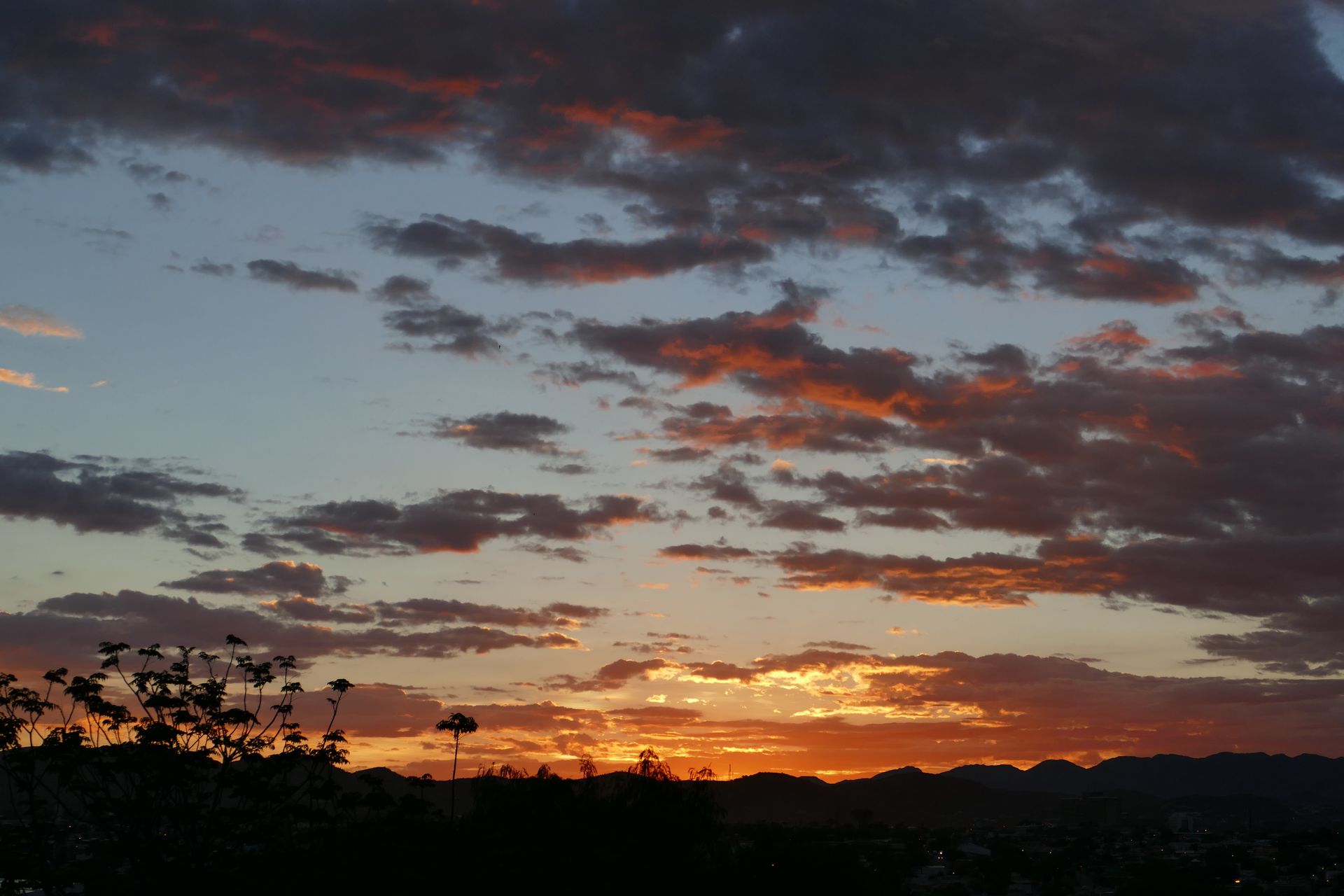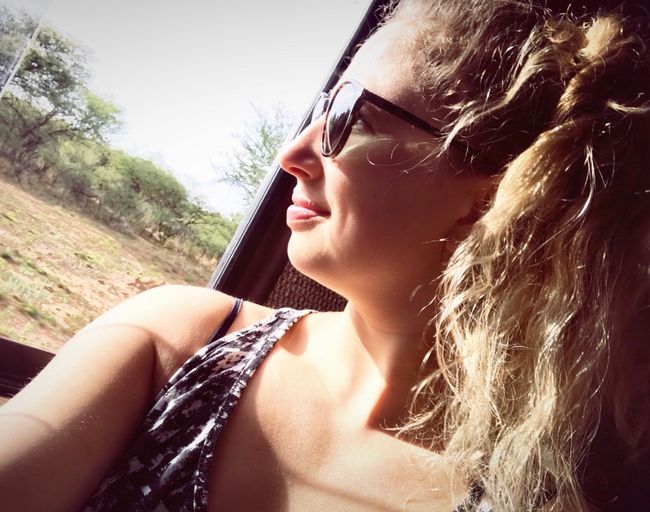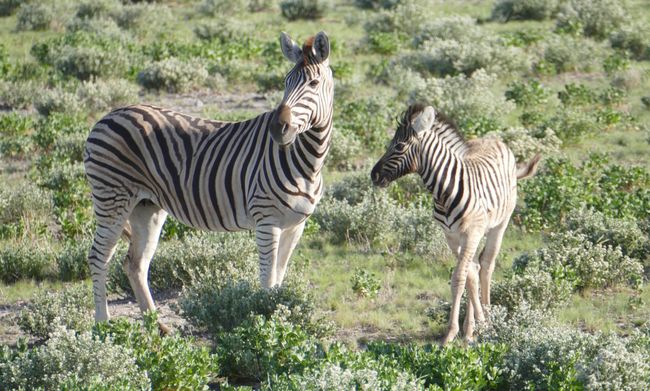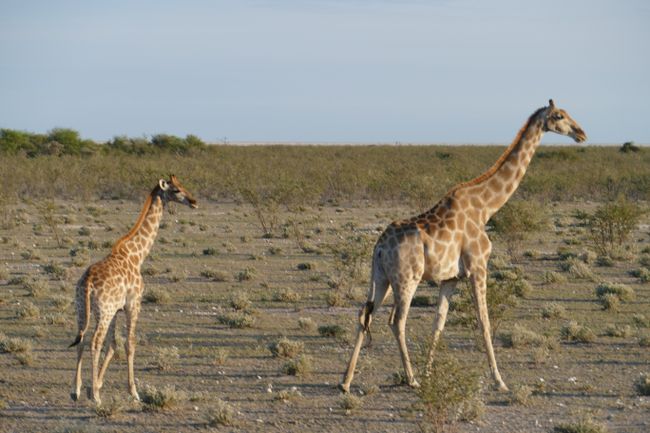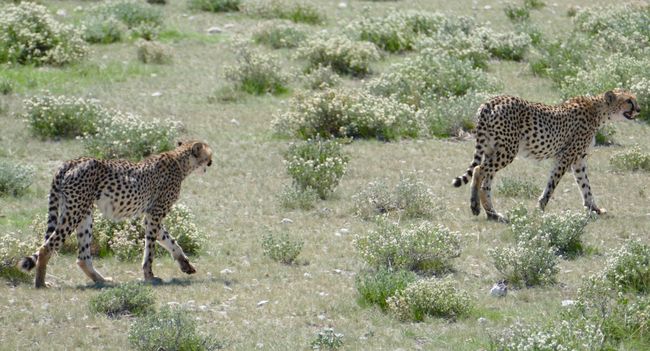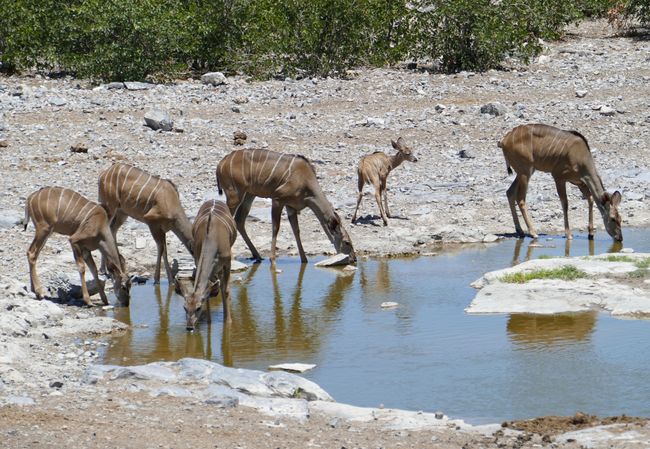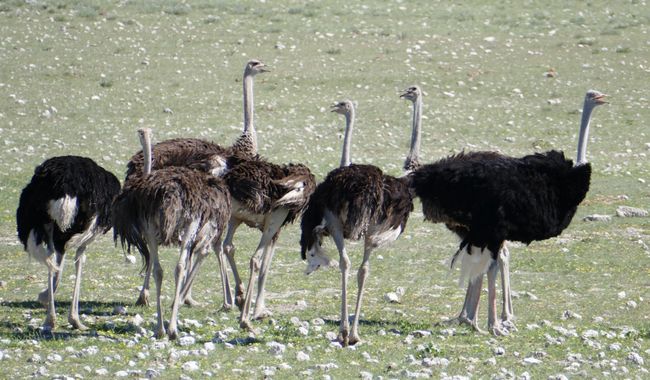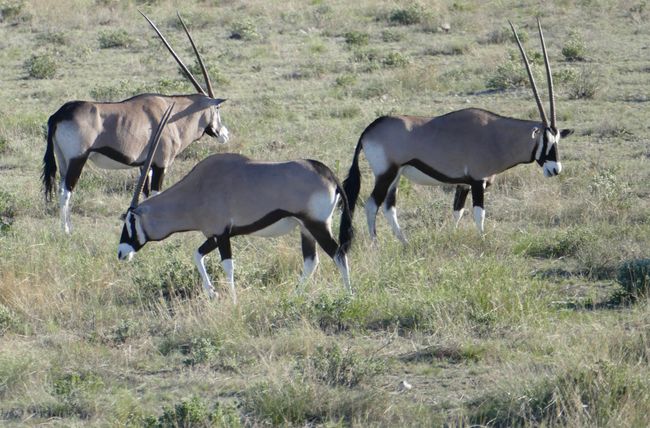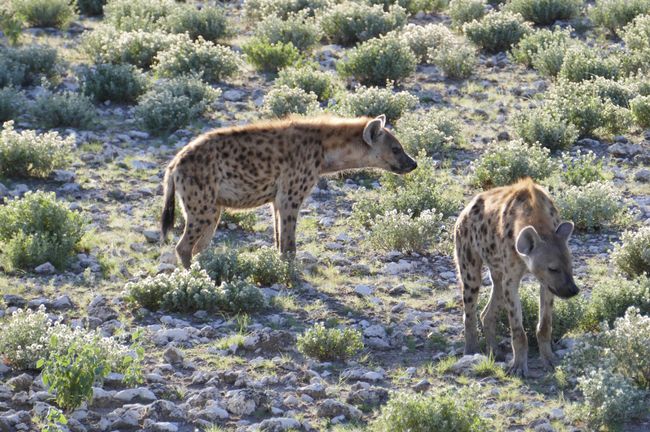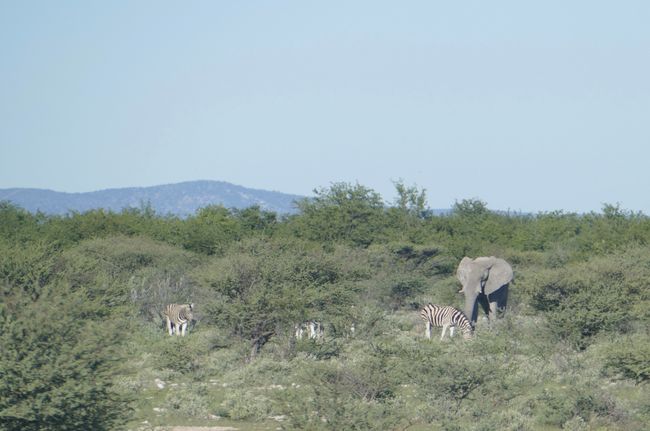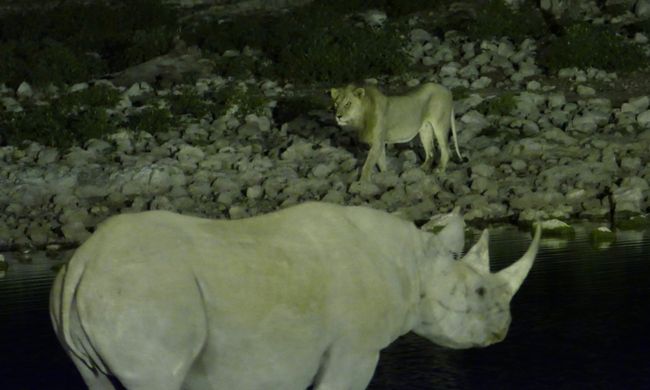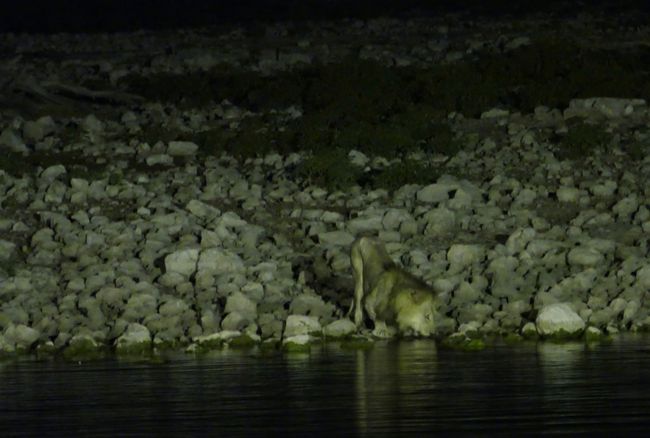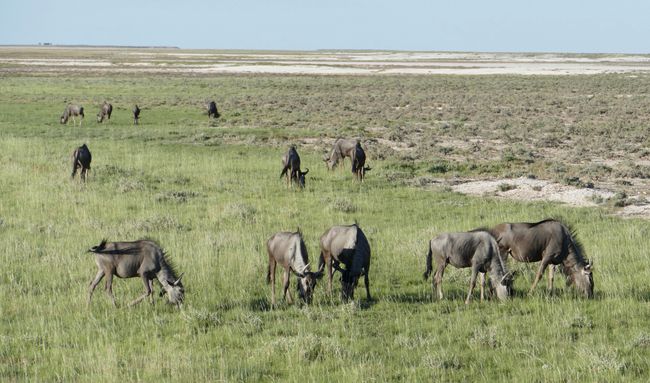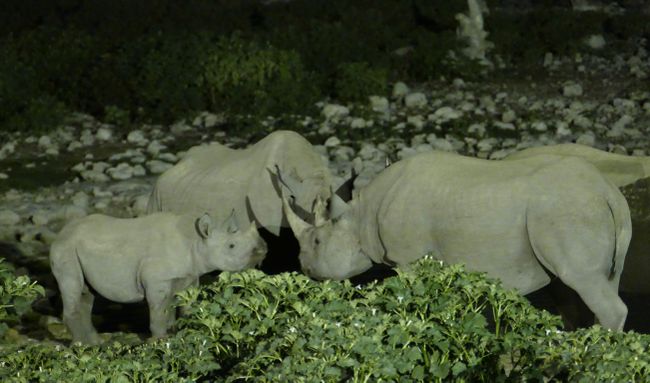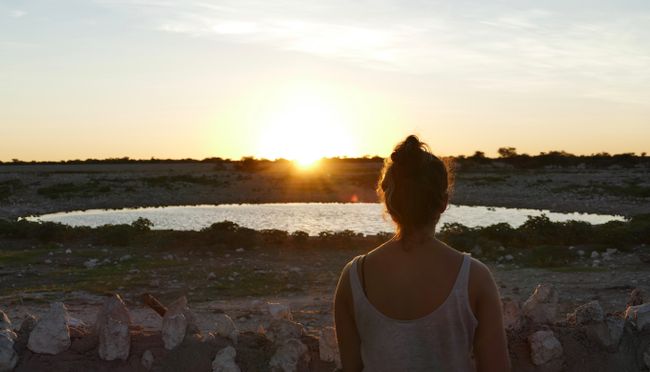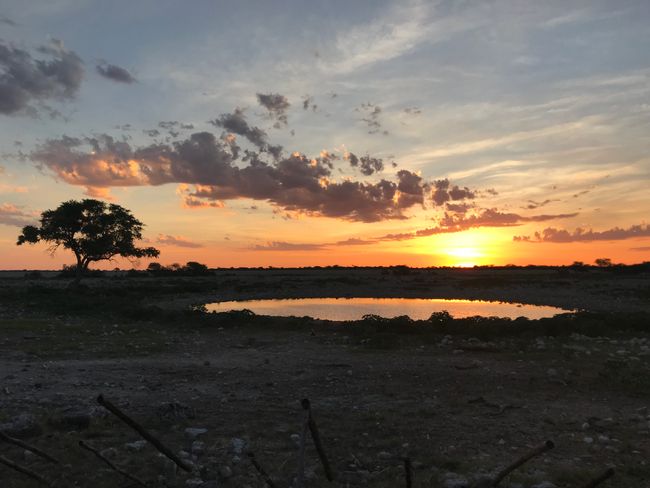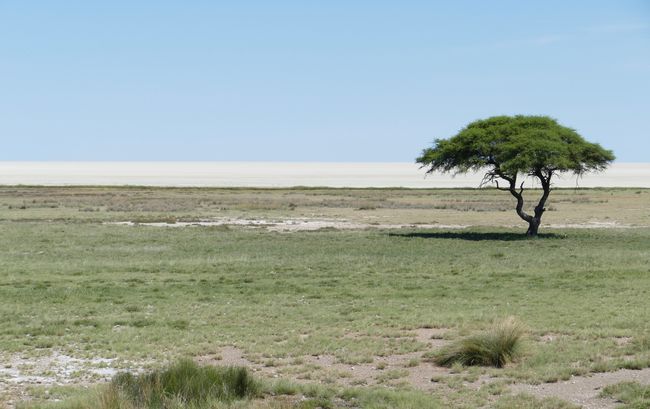This is Etosha.
Ippubblikat: 25.02.2018
Abbona għan-Newsletter
Wow. The last two days were impressive. So many different animals - this is Namibia, this is Etosha! The national park covers an area of 22,275 square kilometers, making it Namibia's largest nature reserve.
On Friday afternoon at around 3 pm, we arrived at our campsite in Okaukuejo. It is located in the national park and is 17km away from the entrance gate. After a short tour of the campsite's waterhole, where only zebras were seen at that time, we had lunch. At 5 pm, we set off for our first two-hour game drive. We returned to the camp at 7 pm, just in time for sunset, and observed the beautiful colors at the waterhole. We returned there after dinner as well. Two rhinos and a giraffe had arrived during that time. After they disappeared, we went to bed. Before that, we took a cold shower, which was much needed after melting away in the truck at 37 degrees during the day.
In the morning, at 5 o'clock, one hour before breakfast, I walked alone to the waterhole with my camera. Although lions could be heard loudly, unfortunately, they did not show up. But the roaring was very impressive. At 6:45, the gates to the national park opened, and shortly after, we set off. The morning is the best time to see many animals, as they are still very active and not hidden in the bushes. We drove through the national park for four hours, from waterhole to waterhole, always searching for animals and other safari vehicles that could indicate that they have spotted something. We had our lunch break from 11 am to 3 pm at Halali campsite. In the midday heat, it is unbearable in the truck, and the animals are not active and lie in the shade. Before lunch, we quickly walked to the campsite's waterhole and then lay by the pool. It was also unbearable there due to the heat.
At 3:15 pm, we headed back from Halali to Okaukuejo, but of course, not taking the shortest route, after all, we are on a safari trip. Even though the rainy season is not the best time, we were really lucky. Springboks and zebras clearly make up the largest populations, as we could tell. But we also saw numerous other animals. Wildebeest, antelopes, kudus, oryxes, birds, giraffes, ostriches, hyenas, and rhinos. However, the highlight of yesterday was definitely cheetahs, which are the rarest to come across. Even rarer than leopards and lions (which we unfortunately did not see). So we were really lucky. It is so fascinating to see all these animals, which we usually only know from the zoo, in the wild. I could have watched them for hours. It particularly pleased me that almost all the animals currently have babies, so I could see the babies of almost all species as well. As you can see in the photos, I love them 😍
When we returned to the camp, we watched the sunset again, had a delicious dinner, and sat by the waterhole. At first, there was only one rhino there for a long time, then Giulia and Nellie (Lena's German friends) went into the tent because they were tired. I stayed sitting a little longer - THANK GOODNESS!! First, five rhinos, including a baby, came very close. They drank, bathed, fought, defended their baby, and almost posed for the camera. But it got even better: suddenly two male lions came very close to the waterhole 🦁🦁 I could hardly believe it and was delighted. I quickly messaged the girls, and they came running in their pajamas in time 😉. Once again, my camera proved to be a great purchase. Most people were annoyed with their cameras because it is very difficult to take good pictures at night without a tripod. Despite the poor lighting conditions, I managed to take some beautiful photos that may not have perfect quality but are definitely sufficient as a memory.
So the day was really successful! The only thing that annoyed the two German girls and me was that the Norwegians turned the journey back from Halali into more of a party bus tour than a safari tour. Although our guide said at the beginning that music is prohibited in the national park and you always have to be quiet so as not to scare away the animals, he let it pass that loud party music was playing and people were singing along. In addition, they had stocked up on enough alcohol beforehand and started to get drunk. In my opinion, this really doesn't have to be the case on a safari tour, but maybe I'm just too German for that 😄
Whether that was the reason why we didn't see as much in the afternoon, we don't know, it doesn't really matter in the end 😊
Unfortunately, I overslept this morning, so I only spent half an hour at the waterhole before breakfast. Like in the morning before, I could only hear lion roars. At 7 o'clock, we set off back towards Windhoek. We were still on safari until 9:30. Observing the animals in the morning light is simply fantastic. These two hours were a beautiful conclusion to the trip (without music 😉). We even saw an elephant, which is rare at this time, as they are all migrating north. Even though I would have liked to see a lion during the day, I had the opportunity to take so many great photos and videos that I now need to sort through. I really should have brought a hard drive.
Sending you hugs!
Your Hanni ❤️
Abbona għan-Newsletter
Tweġiba (1)
Beate
Super tolle Fotos, vor allem die nächtlichen Aufnahmen von den Löwen! 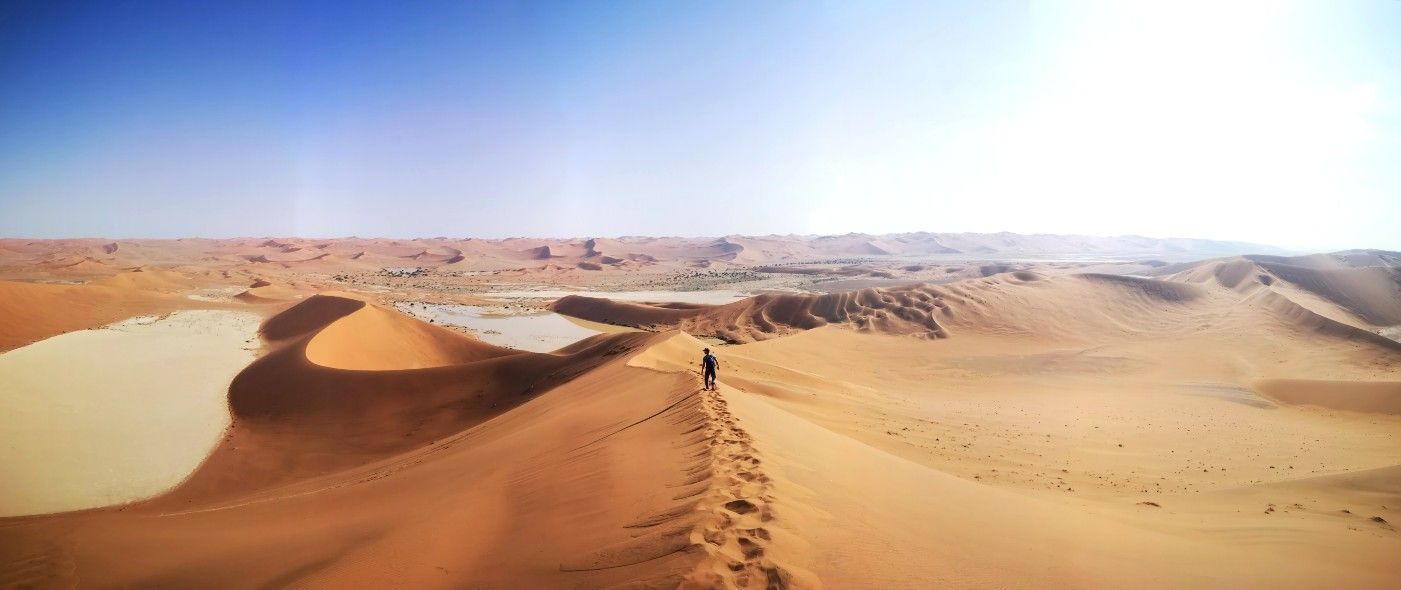
Rapporti tal-ivvjaġġar Namibja
